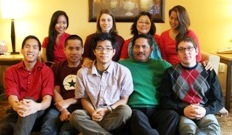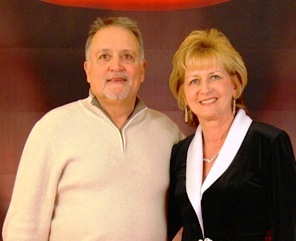This article is part three of a six-part series by Gary Deddo on interpreting Scripture. For part one, click here. For part two, click here.
Guidelines for approaching Scripture reverently with prayer by faith
Since, as we have been discussing, Scripture is the gift of God, where God has graciously promised to speak to us through his living Word, what, then, are some guidelines for approaching it? I think the first thing needing to be said is that we must approach it reverently with a desire to be addressed, to hear a word from God. This attitude is probably best demonstrated when we start with prayer to God, the God of the Bible. In prayer we acknowledge that we look for and anticipate receiving a word from God himself, that is, hearing from the Living Word through the written word by the Spirit. It shows we are ready to listen, to hear. And we express in prayer that we want to hear what the Lord has to say to us. That is, we listen as his children, as his sheep, not as one of his advisers or as an engineer might seek impersonal information about some empirical object or law of physics perhaps to use for some other purpose.
In prayer, we also acknowledge that we depend upon the Lord and his grace to speak in a way that we can receive. That is, we listen by faith, as we trust that the Lord does speak and knows how to get through to us, the dumb sheep! Listening to Scripture as God’s holy word is an act of faith in the God whose word it is. We read or listen to Scripture by faith in the grace of God, just as we do in every other response of ours to God. We listen and study Scripture by faith.
This means that we do not put our trust in our techniques for studying the Bible no matter how simple or how sophisticated they are. And we aren’t just mining for data, for information, for formulas or principles or for truths that we can possess or use for our own ends or purposes. In prayer we place ourselves before the living Lord trusting that he will make himself known to us and enable us to hear and follow him wherever he takes us. Faithful prayer to the Living God of the Bible is essential for our preparation for listening to Scripture.
God’s agenda, not ours
Second, listening to Scripture as God speaking to us means letting it set the agenda for us, according to the nature and purposes God has for giving us the gift of his word. This means that we’ll come to Scripture not to give us, first, exactly what we’re looking for, such as answers to our current or even pressing questions, but to show us what the right questions are and what issues have priority in God’s view. We will not force Scripture to answer questions that it is not designed to answer nor give priority to some concern or issue we have that does not match with the priorities and central matters of Scripture itself. We’ll be open to having our mind reshaped to reflect the mind of Christ and what he views as of first-order importance.
The primacy of the WHO? question
And what is the central thrust of biblical revelation? It is to make known the identity, character, heart, purpose and nature of God. Scripture is primarily designed to answer the question, “Who is God?” So our primary question in reading and listening to Scripture ought to be, “Who are you, Lord?” That’s the first and most important question that ought to be on our hearts and minds as we study Scripture. No matter what passage we’re dealing with, our primary concern ought to be: “What is God telling me about himself in this passage?”
We’ll need to put in second place our questions of What? How? Why? When? and Where? In fact, these questions can only be rightly answered by putting the Who? question first. In many church settings the most difficult question needing to be put on the back burner is this: “What am I supposed to be doing for God?” We are so anxious to discover what God wants us to do for him that we often overlook the most foundational aspect of Scripture which involves revealing, clarifying and reminding us of God’s nature, character, heart, purpose and aim. It’s far more important to know who it is we’re obeying, than to attempt to do the right thing. In fact, we can’t even accurately discern what God wants us to do, and in what way to do it, unless we act out of knowing and trusting in this God according to who he is. Only then will our attitude and motives and the character of our actions match or bear witness to God’s own character. Only then will we find that his commandments are not burdensome and that his yoke is easy and his burden is light. So we need to read the Bible and listen to preaching in order to see more deeply into who God is.
I should also add that the greatest and most damaging deception we can fall into is being misled about the nature and character of God. Being misled or deceived about who God is undermines our faith, which is in turn the foundation of our whole response to God. With our faith or trust in God undermined or twisted, all the rest will collapse too: our worship, our prayer, our listening to Scripture, our obedience, our hope and our love for God and for neighbor. Our faith is a response to who we perceive God to really be. When that is properly aligned, then the Christian life is enlivened and energized even under difficult situations. When it is distorted, we then attempt to run the Christian life with ropes tangled around our feet. So being reminded daily of the truth of who God is must be our top priority—matching the priority of the structure and aim of both the written and the Living Word of God.
Jesus Christ, the Center of the center
Third, as we do so, we’ll have as the center and norm of our knowledge and trust in God all of what Scripture says about Jesus Christ. Oriented to this living Center of the center, we’ll want to see how the Old Testament points and prepares us to recognize him. Jesus Christ is God’s answer to the Who question—in person, in time and space, in flesh and blood—that ancient Israel sought to know. In Jesus Christ, “What you see is what you get.” In him the whole God is personally present, active and speaking. Jesus is the interpretive key to all of Scripture, for in him we see and hear the heartbeat of God. We watch and hear the motions of his heart and mind, even his Spirit, the Holy Spirit. The light we find shining forth from the face of Jesus sheds light on all of Scripture, for in him the God of the whole Bible has personally revealed himself.
So we ought to read and interpret Scripture in a way that through it all, in one way or another, we come to see how it points towards and finds its fulfillment in Jesus Christ. Think of this as a process much like reading a murder mystery novel for the second time. The first time through, at the end, you finally come to discover “who done it.” The second time through is a much different experience. You can see in a new light how all the clues early on in the mystery pointed to “who done it.” You appreciate the clues (and recognize the false leads) even more the second time through. But the clues are not the solution. Their value is how they indicate or are signs pointing to the resolution of the mystery.
This means that central to our study and understanding of the whole Bible should be the person and acts of Jesus. This calls for giving a certain priority to and focus on the Gospels. This does not mean narrowing our attention simply to the words or teaching of Jesus, as some “red letter” Bibles might tempt us to do. Rather, this means placing at center stage all of what the Gospels tell us about who Jesus is. This will include his own words, actions and self-interpretations (think, for example, of all the “I am” statements in John), but also make use of those texts that answer most directly who Jesus is, not only in the Gospels but also throughout the rest of the New Testament.
Who Jesus is in relationship to the Father and the Holy Spirit
As we prayerfully begin to listen to Scripture concentrating on the Who question as answered by God himself in Jesus, you’ll find that the primary way Jesus is identified involves his relationship to God the Father and God the Holy Spirit. The answer to the Who? question is intrinsically bound up with grasping the nature, character, purpose and aim of Jesus in relationship with the Father and Spirit. For Jesus primarily and consistently identifies himself by means of those relationships. He is the one sent from the Father, the one who has been eternally with and eternally loved by the Father. He is the One who has the Spirit and who has come to give us his Holy Spirit.
The highest concentration on the importance of Jesus’ relationships with the Father and Spirit comes in the Gospel of John, reaching the apex in John 17. To know Jesus is to know the Father. To know the Father means recognizing who Jesus is. Interacting with Jesus means dealing directly and personally with the Father and the Spirit.
So in our Bible study and preaching we must pay attention to the quality and nature of Jesus’ relationship and interactions with the Father and Spirit. For he is, in his being, the Son of the Father, one with his Spirit. Pay special attention to anywhere in Scripture where we’re given insight into the relationships of the Father, Son and Spirit. For in those relationships we will see and hear most directly, personally and concretely who the God of the Bible is. And in returning to that living Center of the center, again and again we’ll find our faith nourished and growing with a life of joyful obedience flowing out of it.
With the Center of our prayer, faith, devotion and worship set, as a kind of North Star, everything else regarding listening to and studying the Lord’s Scripture gets properly oriented.
 SEP Mindanao, a GCI youth camp in the Philippines, was held on April 24-28. The camp’s theme was Make Your Mark. It was attended by 81 campers and 44 staff from various parts of the Philippines. 70% of the campers attended for the first time and almost 30% were non-GCI members.
SEP Mindanao, a GCI youth camp in the Philippines, was held on April 24-28. The camp’s theme was Make Your Mark. It was attended by 81 campers and 44 staff from various parts of the Philippines. 70% of the campers attended for the first time and almost 30% were non-GCI members. The camp focused on chapels and Christian living classes using the GCI Generations Ministries’ Behold curriculum. Recreational activities included soccer, dance, basketball for boys and volleyball for girls.
The camp focused on chapels and Christian living classes using the GCI Generations Ministries’ Behold curriculum. Recreational activities included soccer, dance, basketball for boys and volleyball for girls.







